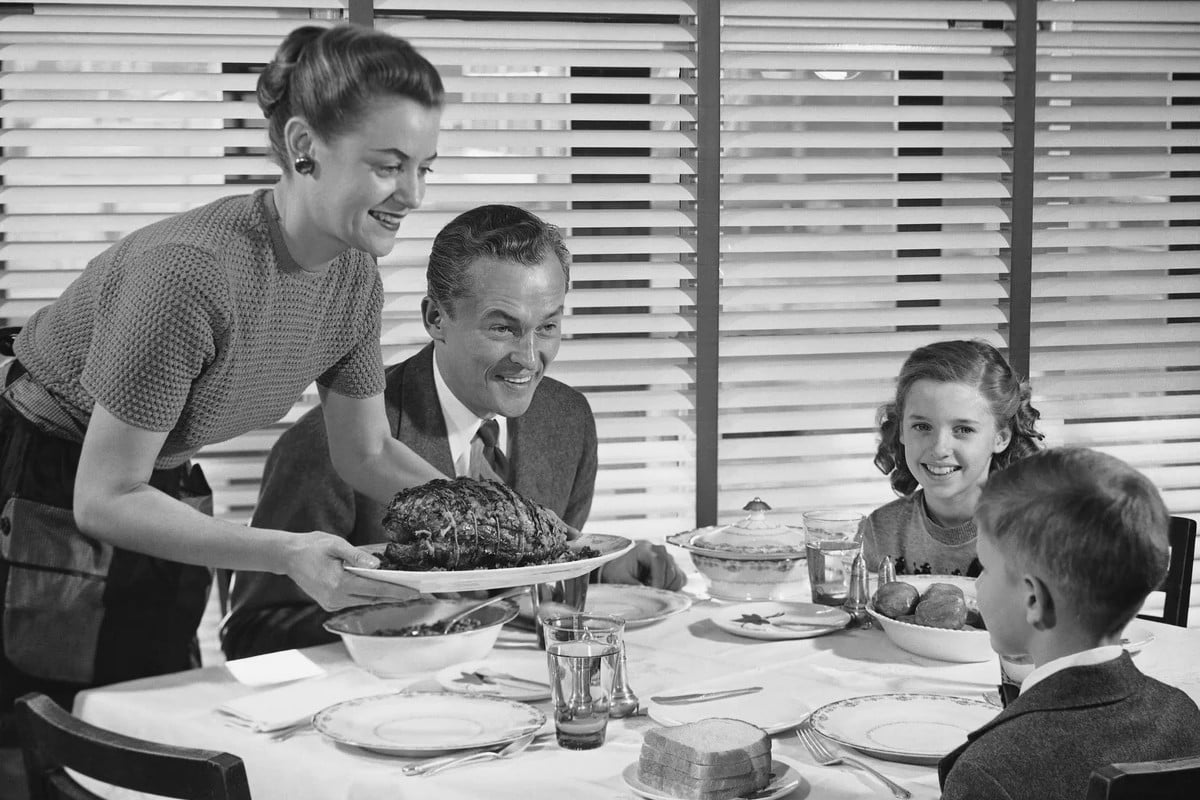
It all started, as so many arguments do, with a Pinterest board.
I'd spent hours poring over thumbnails of pristine dining rooms trying to create a vision of what I wanted for my dream dining nook. You know, those corner banquette booths with throw pillows every family in an American sitcom seems to have?
I wanted one for all our important family conversations (our daughter is four, so it's mostly conversations about "poo-poo heads" at this stage) and to host dinner parties (we have never hosted one before, but a booth seat might change that?)
Listen to The Quicky discuss the death of the dining table. Post continues below.
But when I proudly showed my husband the dining table I'd painstakingly selected and added to my board, he scoffed.
SCOFFED.
"Why are you worried about the dining table when we sit on the lounge to eat most nights?"
Was he correct? Yes.
Was I still offended? Absolutely.
Like most millennials and Gen X'ers, I grew up eating at a dinner table where there were no screens, no elbows on the table and you had to excuse yourself when you were finished.
And still today, eating dinner as a family is seen as a cornerstone of "good parenting," with experts touting its benefits when it comes to nutrition, socialisation and increased academic performance.
It's also hammered into us that parents must model good eating habits for their children, so when my daughter started solids, we sat together as she flung multicoloured mash around the room. But somewhere along the line, our dining table became the dumping ground for books, daycare artwork and random "bits" of toys that I knew belonged somewhere… but just not exactly sure where.




























































































